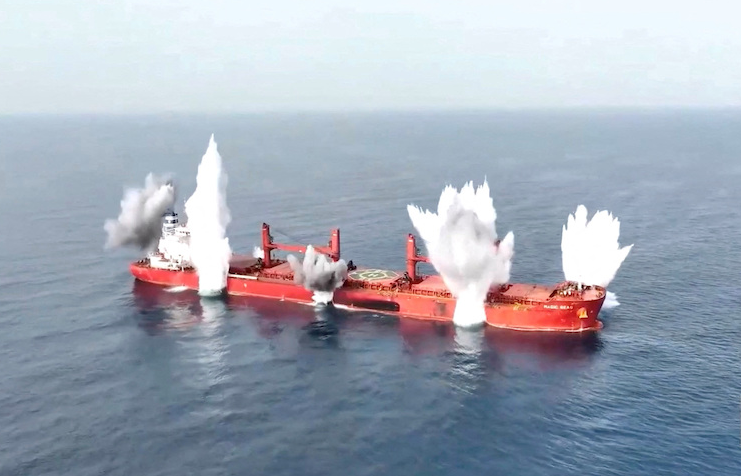The cost of insuring ships transiting the Red Sea has soared dramatically in the wake of two deadly attacks by Yemen’s Houthi militants, shattering a period of relative calm and reigniting fears over maritime safety in one of the world’s most strategically vital trade routes.
Industry insiders said on Thursday that war risk premiums for Red Sea voyages have more than doubled within days, following the sinking of two commercial vessels and the confirmed deaths of at least four seafarers.
The Red Sea, a crucial corridor for the global movement of oil, gas, and other commodities, has seen a significant reduction in vessel traffic since the Houthis began targeting international shipping in November 2023.
The group, aligned with Iran, claims its campaign is an act of solidarity with Palestinians amidst the ongoing conflict in Gaza. Despite earlier signs of de-escalation, the latest assaults mark a dramatic resurgence in violence.
Insurance premiums, which had eased in recent months, have now surged to approximately 0.7 percent of a vessel’s value, up from around 0.3 percent before this week’s incidents.
Some underwriters are reportedly suspending coverage altogether for transits deemed too risky. Quotes for a standard seven-day voyage have reached as high as 1 percent — levels not seen since the height of the conflict in early 2024. These figures translate into several hundred thousand dollars in additional costs per shipment, straining global supply chains already facing inflationary pressures.
Head of marine and aviation at the Lloyd’s Market Association, Neil Roberts, emphasised the renewed threat, stating that the latest attacks have underscored the need for extreme caution when considering Red Sea passage. The violent targeting of merchant shipping has again thrust the maritime insurance industry into crisis mode.
On Wednesday, a missile strike on the Greek-flagged vessel Eternity C resulted in the deaths of four crew members out of a total of 25 on board, with additional survivors pulled from the sea the following day.
According to maritime authorities, some crew remain missing, and the Houthis claim to be holding others captive. Earlier in the week, another Greek-operated ship was also sunk, further escalating concerns.
Shipping data analysis indicates that some of the affected vessels, or their sister ships, had called at Israeli ports in the past year. This connection, however distant, has become a focal point for Houthi targeting, particularly in light of the group’s previous declarations that any link to Israel — however indirect — renders a vessel a target.
Between November 2023 and December 2024, the Houthis were responsible for more than 100 assaults on commercial shipping.
A tentative deal announced by the United States in May aimed to halt American airstrikes in exchange for an end to maritime attacks. However, the Houthis later stated that the agreement did not extend to vessels linked with Israel, complicating enforcement and casting doubt over the deal’s effectiveness.
Insurance underwriters are increasingly hesitant to offer cover for any vessels with ties to Israel, a stance that underscores the widening risk assessment criteria now in play.
Copyright Ships & Ports Ltd. Permission to use quotations from this article is granted subject to appropriate credit given to www.shipsandports.com.ng as the source.

